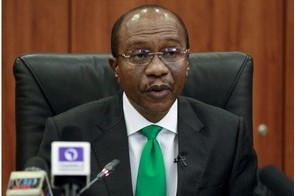Latest News
India's demonetisation is currency theft – Prof Hanke

News Highlight
- Hanke said demonetisation has resulted in negative confidence shock in the economy.
Professor of Applied Economics at the Johns Hopkins University in Baltimore, Steve Hanke, has described the Indian government's move to scrap the country's high-value bank notes and replace them with new ones as currency theft.
Hanke, who has over 30 years of experience in designing and implementing currency reforms around the world, spoke on India's demonetisation with Rediff.com, a news organization in India, last week.
Prime Minister Narendra Modi made a surprise announcement on November 8, 2016, that the government was removing 500 and 1,000 rupee notes – India's highest value bank notes – out of circulation. The move, aimed at ending tax fraud and corruption, reportedly pulled out 86% of India's currency from the economy.
Part of the government's objective was also to end the culture of "black money" – stashes of tax-free cash hidden away by many Indians. The government has since printed new 500 and 2,000 notes to be exchanged with the old ones.
"Demonetisation, is in principal, a mistake, because it involves a theft – a taking of private property by the State," said Hanke. “As a practical matter, it is one of those bad Indian ideas that has been tried twice in the past, in India, with two failures for the record books.”
A Senior Fellow and Director of the Troubled Currencies Project at the Cato Institute in Washington, D.C., Hanke said demonetisation in the world's 7th largest economy has resulted in negative confidence shock.
Hanke said economists have long agreed that the business cycle is determined by fluctuations in business confidence. Changes in confidence essentially affects consumption and investment patterns as emphasised by British Economist, John Maynard Keynes.
Hanke argued that the disruption caused by the government’s move to invalidate high-value notes will impact the Indian economy. He said nominal national income in the country will slump due to reduction in money supply unless the Reserve Bank of India can offset the hit caused by demonetisation by filling people’s pockets with money. According to Hanke, national income, in nominal terms, is determined by the quantity of money broadly determined.
"Unless the Reserve Bank's monetary policies and the policies associated with commercial bank regulation and supervision can be altered, to get broad money and credit to the private sector back on track, slower nominal growth is baked in the cake," Hanke noted.
India's economic growth is estimated to slow to 7.1% in the current fiscal year ending March 31 compared to 7.6% last year, according to data released by the Indian Central Statistics Office last month. The International Monetary Fund's (IMF) forecast is slightly lower at 6.6%. However, the government's estimate did not reflect the impact of demonetisation. A revised full-year GDP estimate is expected to be released on February 28.
In December, the Indian government announced some measures to incentivise cashless transactions to reduce the effects of the reduction in money supply. The government announced discounts on the purchase of fuel and insurance policies as long as payments were made using debit and credit cards, mobile phone applications and e-wallets. Merchants who encourage customers to make purchases of up to 2,000 rupees electronically get a waiver on certain merchant discount rate (MDR) charged by the issuing bank.
“The idea of India going cashless is a bit of a joke,” noted Hanke. “India has been one of the most cash-intensive economies in the world for many moons. Whoever believes that India can become cashless in the foreseeable future must believe in the tooth fairy.”
Related News
Latest Blogs
- Nigeria and the International Oil Pollution Compensation Fund
- Prospects of Islamic finance in upscaling off‑grid renewable solutions in Nigeria
- Social outcomes as the tail that wags climate action
- The case for due process in aviation regulatory enforcement
- AI solutions for improved crop production
Most Popular News
- NDIC pledges support towards financial system stability
- Artificial intelligence can help to reduce youth unemployment in Africa – ...
- WTO agreement on fisheries subsidies enters into force
- Bank of Agriculture signs $1 billion financing programme
- Cassona Global Imaging marks 3rd anniversary
- ICRISAT launches 2025–2030 strategy to shape the future of agriculture









